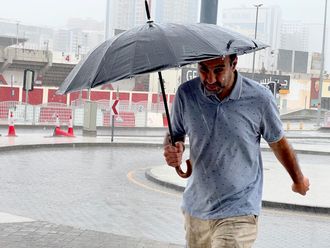
To go or not to go?” This is the question most 16-year-olds are faced with when they reach high school, a time when higher education plans are made and the career quest begins.
Until a few years ago, most expat families sent their children either to their home countries or westward to pursue higher education. With local options becoming increasingly available, tightening of emigration laws and the realisation that the dollar and pound are becoming dear in the currencies of their home countries, families are forced to rethink their plans.
In my opinion, apart from these considerations, there is one key factor that needs to be given serious thought and that is the maturity level of the young adult. When the young person is not emotionally ready for the challenges of living in a new country, they may find it intensely demanding. While making mistakes and learning from them shapes their personality and character, making him/her strong, some of these mistakes may prove to be costly.
Parental expectations, peer pressure, keeping up with the Joneses are all the wrong reasons to pursue a programme overseas (the UK, the US, Canada and Australia being top choices for UAE students).
Choices can be emotionally draining
Young adults who have had limited exposure and a cloistered existence find the transition to university overseas emotionally draining. The plethora of choices one has to make — whether in the classes one needs to enrol in or the meal plan one needs to opt for — makes it a trying time.
Young adults who are used to having decisions made for them find the choices more of a nightmare than an opportunity to learn and grow. Moreover, some students are not able to handle the freedom they enjoy.
As parents, we need to understand that each child is unique and we need to prepare them adequately before they leave the nest. Filling out the forms, crafting the essays necessary, getting all the pre-requisite tests out of the way and getting reasonable scores may help your child secure a place easily, but staying the course is the challenge. Securing a place in an Ivy League institution may give you bragging rights, but is it the right move for the young adult?
Apart from this, in some educational systems like the North American system, there is a lot of academic freedom and one can pick and choose subjects as per one’s interest and career aspirations, while in others, there is limited flexibility.
We need to factor in this feature while making the decision on where to study. Students who prefer a structured programme may find the choices mind-boggling and may keep shifting from programme to programme while others may feel confined in a straight jacket.
Individualistic approach
Last month, I read an interesting book titled American Desi. What impressed me was not the writing style but the experiences described by the author. Those situations could have been replicated in the lives of my advisees. The students who think life in America is akin to TV shows like Friends, Big Bang Theory and One Tree Hill will have to think again. Real life and reel life are different.
Universities treat young adults as adults and the spoon- feeding they are used to in school and at home is no longer a given. Students are expected to seek help whether when homesick or when they are unable to understand the educational requirements or any other challenges they may face.
As such, it can be overwhelming and bewildering for the young person. He/she would need to seek help from the professionals in the international office, or assistance from among the seniors.
Most institutions have academic advisors who help you set goals, plan your course schedule, pick and drop courses, etc making academic life easier to handle.
In parallel, there are student counsellors on campus who help deal with emotional challenges like home sickness, inability to adjust with a roommate, relationship and weight issues, to name a few. While seeking such assistance may be a cultural block, it shouldn’t be so. Such support is an integral part of growing up and will facilitate transition.
Both parents and young adults on the threshold of this momentous decision – ‘to go or not to go’ — have to examine, discuss and seek guidance either from school or outside so that crucial years are not adversely affected. There is no dearth of local options if your child is ill-prepared for life abroad. The decision has to be well thought out bearing in mind the person’s maturity level and capabilities.
The writer is Founder, Director, Counselling Point Training and Development, a KHDA-approved counselling centre based in Dubai.













